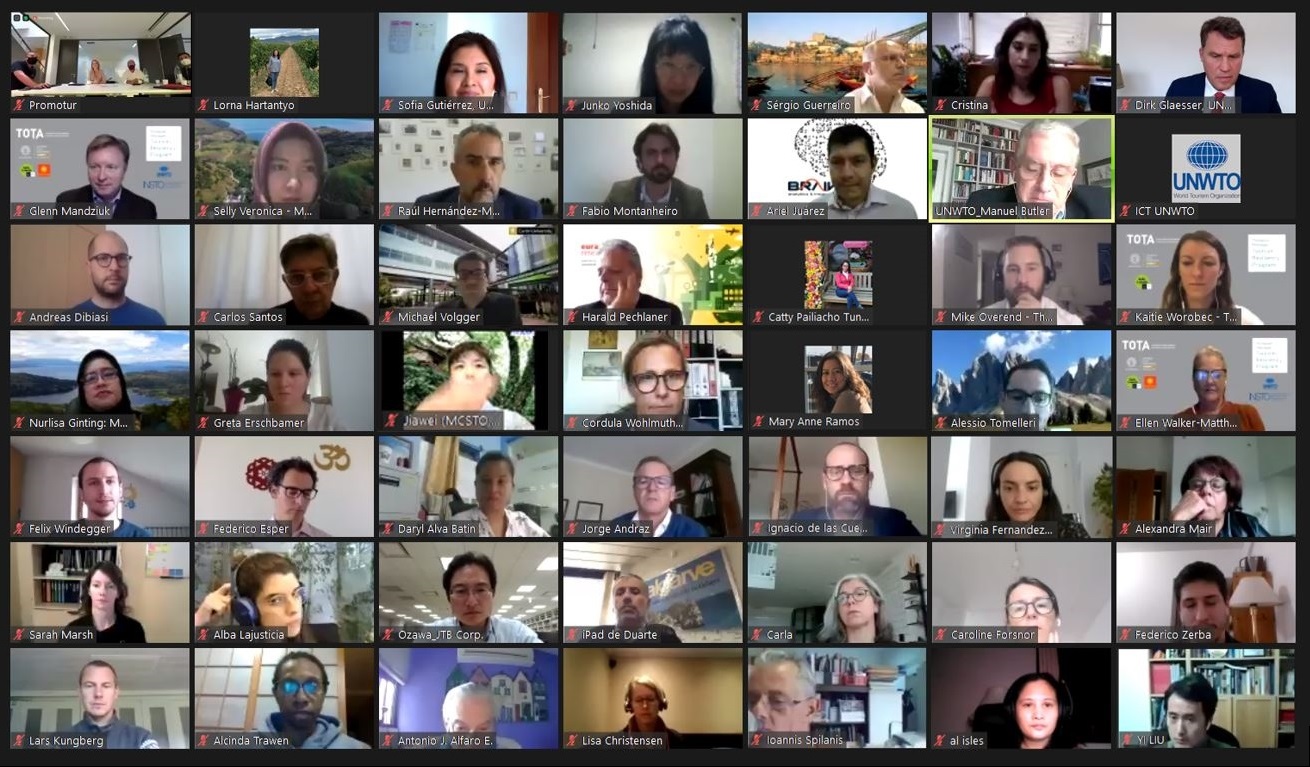The 2020 Global Virtual INSTO Meeting focused on the challenges of COVID-19, public health, product variations to lessen the impacts of the crisis, local and visitor satisfaction as well as on governance
Since its establishment in 2004, the Network of Sustainable Tourism Observatories has steadily grown in both size and influence. Now, as its members help guide tourism’s recovery from the impacts of the COVID-19 pandemic, it met virtually for the second time since the start of the current crisis. The annual meeting provided more than 100 international experts with a platform for open dialogue about the future direction of tourism and on the support destinations need to maintain their efforts to place sustainability at the heart of future developments. The researchers at the Center for Advanced Studies, Harald Pechlaner, Anna Scuttari, Andreas Dibiasi and Felix Windegger not only presented two studies related to the crisis but also a new research focus within the framework of the Sustainable Tourism Observatory of South Tyrol.
The Center for Advanced Studies carried out two surveys to study the effects of Covid-19 on tourism in South Tyrol. “The first survey was conducted among a sample of firms active in the hospitality and food service sector and showed that firms rapidly adjusted their business models to meet the new needs caused by the current pandemic crisis”, Andreas Dibiasi and Harald Pechlaner explained. That is, firms adjusted their cancellations policy, intensified marketing efforts, and actively contacted regular guests. Moreover, survey results confirm that actively contacting regular guests actually pays off: the higher the effort to contact regular guests during lock down, the higher was the share of regular guests in those hotels once the lockdown was over. The second survey focused on the first guests arriving in South Tyrol after lockdown and examined the behavioral changes because of Covid-19. Survey results show that guests increased outdoor activities compared to a pre-crisis standards and reduced time spend on cultural events, museums, and wellness activities. Finally, while guests declared to keep a greater distance to other guests and reduce social activities, the host-guest relationship appears not to be affected by the current crisis.
In a shared keynote presentation with colleagues from Yukon, Canada, Felix Windegger and Anna Scuttari of the Center for Advanced Studies presented the progress of the Sustainable Tourism Observatory of South Tyrol (STOST) in exploring public health as a future monitoring issue area. In the presentation, a theoretical foundation was established by connecting public health and environmental health through the mediating concept of ecosystem services. In general, the healthier an environment is, the higher is the quality of these services (e.g., the provision of clean air, drinking water and food, climate regulation at multiple levels or the recreational value of access to nature). Therefore, thinking public and environmental health together and focusing on their interconnections might be a useful strategy to create a healthier and more sustainable destination. Based on these insights, a possible framework to assess indicators for public and environmental health was developed. It compares the two dimensions of health on three levels (infrastructures, services, subjective experiences). Finally, referring to the lessons learned from the Covid-19 pandemic, it was stressed that the readiness of public health systems, their capacity to deal with unforeseen events, is crucial when it comes to fostering the resilience of a destination.
The meeting also focused on ongoing issues for INSTO members, including measuring the satisfaction of both tourists and residents of tourists destinations, assessing and improving governance, and identifying how combined national and local actions are paving the way for a sustainable response, resilience and recovery.
The main takeaways can be found HERE.

